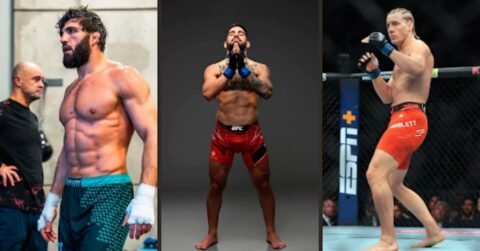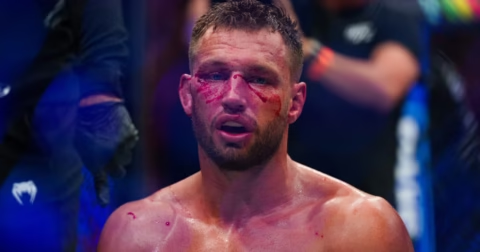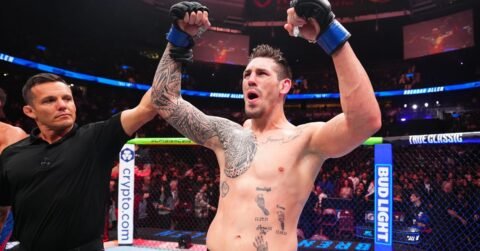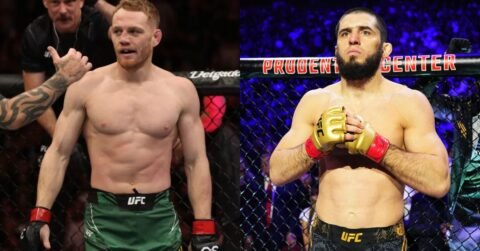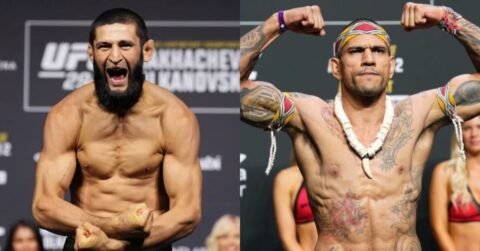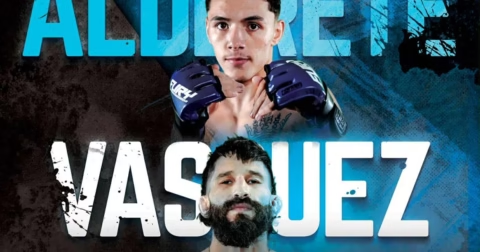Dan Hardy needs little introduction to the MMA world, Dan is a former UFC Welterweight title challenger, and now is doing excellent work co-commentating for the UFC. Dan has long been on my hit list to do an interview, and I am sure you will agree it’s been well worth the wait.
THE INTERVIEW:
Q: I’ve just finished reading your autobiography, I have to say it’s a fantastic read. Were you approached to do the book or did you approach the relevant people and was it something you always wanted to do?
A: I had already begun planning it but had been dragging my feet, as I’d been so busy with the UFC. When they approached me about an autobiography it was the final kick I needed to commit to it. I have about four other books that are about 75% complete. Hopefully it won’t be long before my second book is available.
Q: I could go through your entire career, but we would obviously be here all night, so I will pick out a few key fights. What’s your biggest regret about the GSP fight, how you trained or how you performed in the fight or something else?
A: I would say my biggest regret was not being more active, and perhaps a little more reckless. I spent too much time waiting for his shot so I could try to defend. I didn’t really have the money to put together a championship training camp either. I’m not sure what I could have done differently with the resources I had, but certainly with my approach to the fight itself.
Q: What would be the biggest lesson you take from the fight?
A: That you can’t knock ‘me out unless you throw something in their direction
Q: Am I right in thinking you entered the Carlos Condit fight over confident, and probably not mentally where you should have been?
A: Definitely. The biggest mistake of my career. Myself and my team were convinced I was going to starch him, so I took too many chances and didn’t respect his game the way I should have. I’m thankful for the lesson though. Perhaps I could have learned it in a less public scenario but I won’t ever forget it, that’s for sure!
Q: You went on a losing streak after the GSP fight, could you pinpoint any specific reasons for the defeats?
A: I think it was a combination of several things. I had switched coaches before the Swick fight and my original Muay Thai coach was tall and rangy, and had a style which was very similar to my own. When I started working with a different coach, his style was much more of an aggressive pressure style, which was taking some time coming to grips with. I felt quite disillusioned with the sport after my title fight as well. I was annoyed at myself, as well as the status quo of the industry. I had also lost my grandfather a few weeks before the GSP fight, and he played an integral role in my martial arts career. I had the Prime Time cameras with me all the time except for his funeral so I never really had time to process it properly.
Q: You got back on track with a series of wins, and then your career was stopped in its tracks with the heart condition. Are you still looking at fighting again, if so where are we at, have you been cleared to fight yet?
A: I have clearance to fight. I just need to serve my time in the USADA testing pool before I’m eligible to compete. I have one, maybe two more fights left though, so I’m in no rush. I have no set plans yet.
Q: If you did return to the Octagon you have previously said it would be at Lightweight would you have any names in mind who you would like to fight?
A: Lightweight is likely. No opponents in mind.
Q: You are obviously in the commentary/analysis role now. You do hours of preparation, which is obviously apparent in your work. I must say it’s obvious when others don’t prepare for similar roles. Is that something that annoys you when you see others totally unprepared when doing commentary work, in all sports, not just MMA?
A: I do find it a little frustrating, probably because I watch so much video and I hear people talk a load of shit sometimes. It’s kind of like fighting though. If I show up to fight and my cardio sucks, it’s actually better for everyone else on the card because I’m probably not going to win fight of the night. You represent yourself in the commentary role, as well as the sport. If you do a poor job then it won’t be your job for long, and I love my job. I also love martial arts, which helps!
Q: I would love to see you do a coaching stint on The Ultimate Fighter, is that something you would fancy and if so who would you want to be the opposing coach?
A: I think coaching on TUF would be a lot of fun. Having someone with a bit of chat on the other side would be essential though. Id like someone with a little friendly, competitive banter though. Not this ego posturing stuff we see usually. Maybe a Brad Pickett or Michael Bisping would be a laugh. Or Diego Sanchez if you want a sprinkling of crazy.
Q: There is no doubting the unique skills of Conor McGregor, but maybe his biggest in cage weakness is his stamina. Why do you think this is a problem for him. Do you think it’s training related. Admittedly we don’t know 100% what he does inside his camp and he certainly trains very hard, but is it what he does. From what I have seen he does a lot of sharp explosive workouts and seems to have substituted long runs for cycling for example?
A: I’ve been discussing this a lot recently with a few conditioning coach friends of mine. It seems as though a base level of aerobic fitness is essential, and most people develop that in their early teens. I was running for competition from about twelve, and even to this day I can do nothing for a few weeks and put my running shoes on one day and cruise for ten miles. Or do 90 minutes on the bag. I see it across the sport with people who got into MMA later. They don’t seem to have that cardio safety net which supports all output and recovery. I certainly think he would benefit from six months of gruelling, make-you-puke workouts, but I haven’t seen his training week so it’s hard to judge what’s lacking. If anything. I reckon I could get him in five round shape though, with some old school ‘just get through it’ kind of training. You get incredible mental toughness from that as well.
Q: Stamina aside, what do you think is Conor’s biggest strength and weakness. Personally I think it’s the same, his self confidence. Certainly in the 1st Diaz fight that self confidence led to arrogance which led to defeat?
A: His biggest strength is his striking skill. That encompasses his timing, accuracy and hand eye coordination as well. It really is outstanding when compared to most other fighters. His biggest weakness now is probably his fame. Celebrity never did good things for an athlete. Especially one as special as Conor. When he is out on his bike doing his conditioning, he has an entourage in cars and on bikes, all on his payroll. Sometimes you just need one prick on a training partner to keep you honest. I used to cycle the same route in Vegas, but because nobody was that interested in what I was doing, I’d get out there on my own and smash thirty miles. I’d often wait until I could see a storm coming as well so I felt like I was charging into war, and that nobody else was out doing the things I was. Conor would be stopped a hundred times if he was out on his own. Fame is nice, but solitude is a luxury. Not one that Conor has any more.
Q: Just a quick question about Ronda. Do you think her demise is down to not evolving in an ever involving sport, taking too much time out for movies etc or her training full stop, specifically her much maligned coach?
A: I think Ronda was a victim of her time, and of incomplete coaching. She was head and shoulders above everyone else in women’s MMA in one particular field, and was able to ride the crest of that wave far beyond what anyone could do now. I also think that gearing her training towards supporting her strengths would have helped.
Q: What one thing would you change in MMA?
A: There are so many things I would change. I think my biggest one, and this really is specific to the UFC, I’d redesign the gloves. I believe there is a better glove that offers more protection to the athletes hand, and also would help reduce eye pokes. As soon as they are ready to take that step forward, I’ll be ready to contribute my thoughts. Also, let’s get rid of this downward elbows nonsense. It’s a legitimate technique and will make little difference to the safety of the fighters.
Dan, thank you so much for your time and great answers to the question, and good luck for the future be it behind the microphone or back in the cage.
Dan Hardy’s Autobiography Part Reptile is out now and comes highly recommended, it’s one of the best MMA autobiographies out there.
(If you are reading this interview, can I ask you to give it a like and a share please.)


